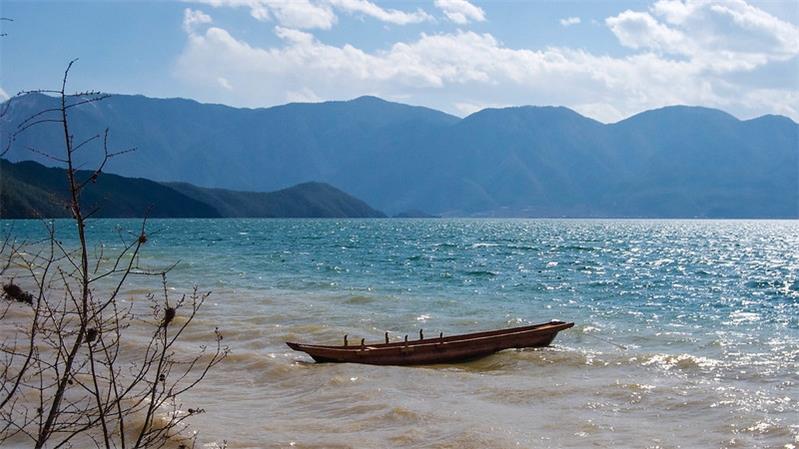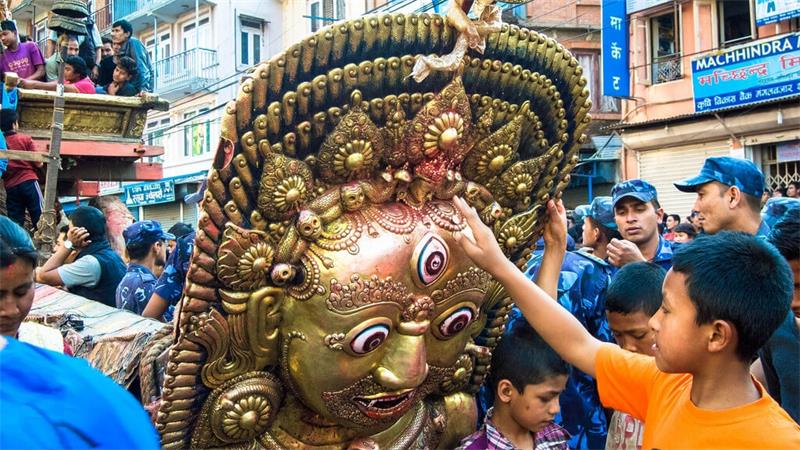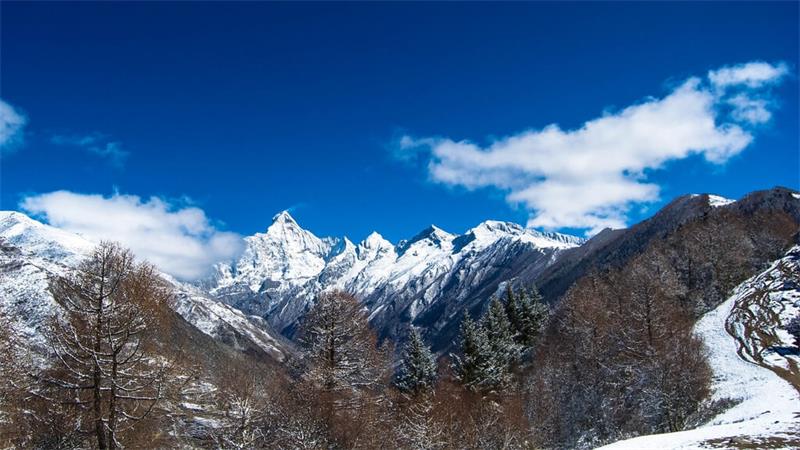
Sichuan province in China has been full of great climbs that I had never heard of else and would never have known existed.
That was all leaked to me when, at a hostel in a town between Chengdu and Lugu Lake, an eager hostel worker sat down with me and told me every spot she believed I should see after I uttered a few words of Mandarin to her and she realized she would be able to speak with me. Showing me photographs of each site on the Chinese version of Google, she then invited me to join her for the employee dinner, which was wonderful and a terrific introduction to food in the Sichuan region.
One of the sites she advised me I should go to is Siguniang Shan (Four Sisters Mountain), east of Chengdu in the Tibetan Autonomous Prefecture of Sichuan Province. Yet another sacred hiking location much like Yubeng, this was about to be a hike that most foreigners don’t know about and haven’t had an opportunity to visit.
After naively following a terribly awful set of instructions online on how to get there, I proceeded to the wrong bus station (the Western Bus Station) where the ticket salesman stared at me like I was absolutely insane, incredibly stupid, or maybe both. An outside observer advised me that I had to travel to Chadianzi station which was a good 15 minutes distant via cab. I eventually managed to accomplish it at the last minute as the bus was ready to start the 8-hour trip. Much of the travel was bumpy and went through some of the ugliest and most dirty mining villages I have ever seen.
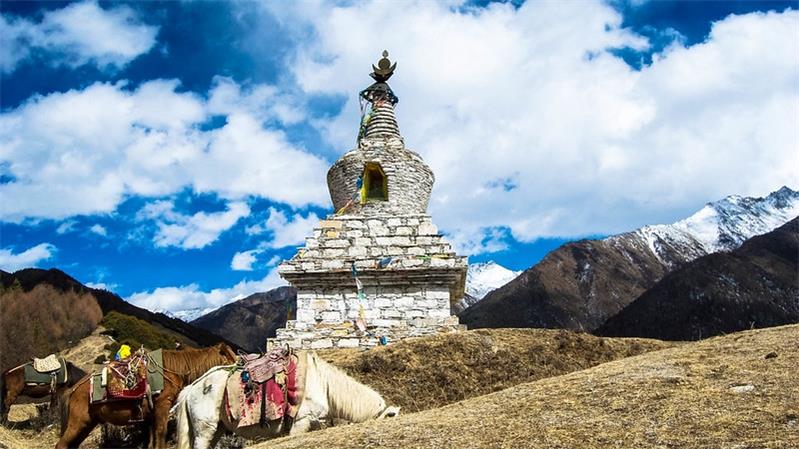
Suddenly, just as we crossed the mountain, the skies turned blue and the sights were so awe-inspiring that practically everyone on the bus swarmed around the windows as the vehicle maneuvered the serpentine roads, screaming for a session shot.
Following the drive-out (after the driver yelled “kuai yi dian!” (hurry up!) to us to gather our stuff and let him leave), I strolled about the little town, not knowing where to stay. I strolled around till I discovered a really kind woman who took me into her guest home. For under $5 a night for my own room, that seemed fairly good to me. Better yet, on a daily basis, she took care of finding me trekking partners so that I was not alone, in addition to preparing one of the greatest lambs I had the pleasure of tasting.
Between her and the nice Tibetan woman who happily spoke with me every morning about my plans for the day while I purchased water and snacks, I felt at home.

There are three valleys in the Siguniang Shan region, two of which provide the hiker with a spectacular perspective of the peaks of Four Sisters Mountain. I selected to trek Haizi Gou (海子沟), a valley recognized for having gorgeous lakes and great mountain vistas. Sadly I never made it to the lakes since my trekking buddies preferred to take frequent lengthy pauses, but it was wonderful to have company and I still loved the roughly 10km we traveled.
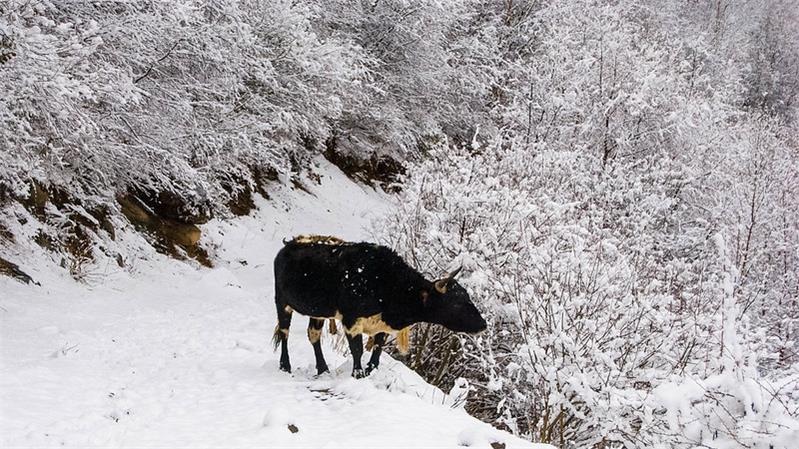
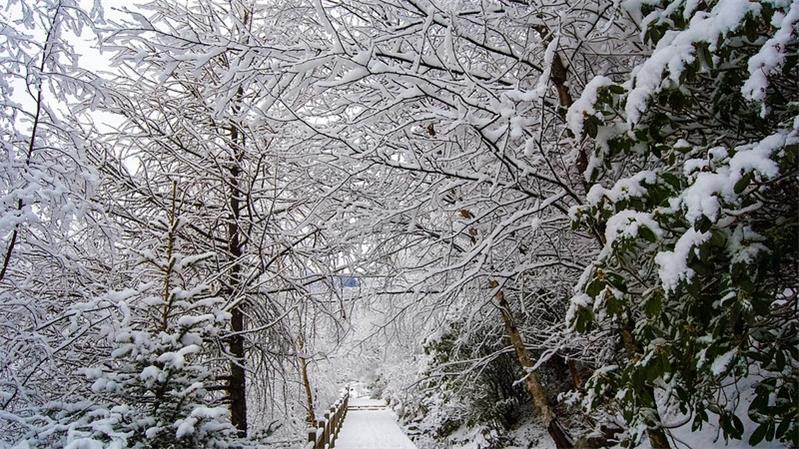
The other one I selected to trek was Shuangqiao Valley (双桥沟), which takes a minibus or public transport from Rilong town to go approximately 5km to the entrance. This valley is a bit unusual since a bus spans it, thus it is possible to hop on and off the bus without ever having to walk. There is also the option of walking the fairly flat 30km promenade from the end to the entrance, or a portion of it, which I elected to do.
The owner of my guesthouse, usually a nice and intelligent lady, discovered another visitor with a motorbike who was also planning to travel there that day, so he brought me for free. It was perfect: we ended up strolling the full promenade, and it provided me the opportunity to practice my Mandarin.

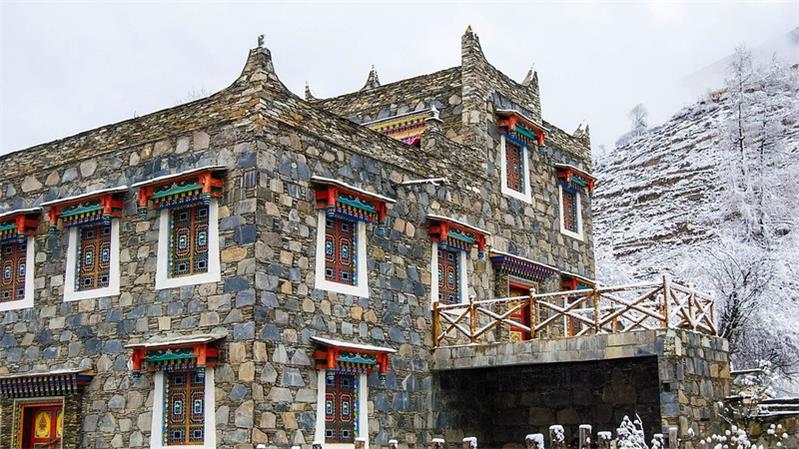
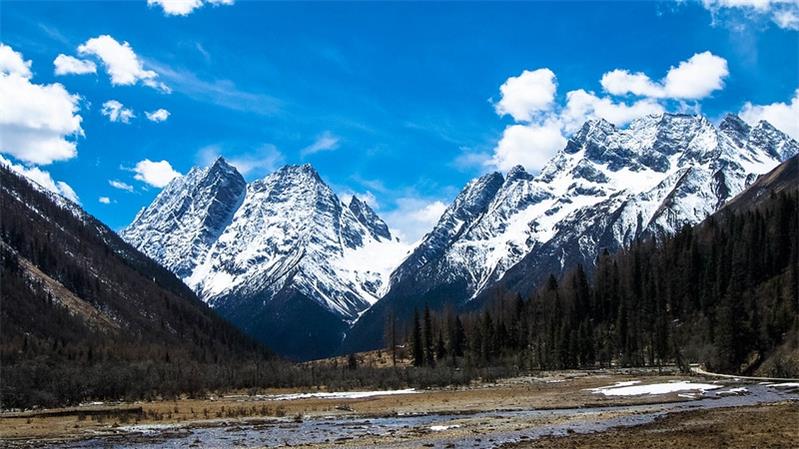
Do it yourself:
- Getting there: First, make sure that foreigners are authorized to visit Rilong in the Tibetan Autonomous Prefecture. It’s not always authorized. Sometimes the method to find out is to show up to buy a bus ticket, in which case you will be turned away if strangers are not allowed at that time.
- Travel to the Chadianzi bus station (which has a metro station of the same name right next to it) and take a bus headed for Xiaojin. As of this writing, they left at 7am and 12pm. De-bus to Rilong. Ask the attendant to alert you of your arrival (simply say “Rilong”) (just say “Rilong”)
- Dormant: Most guesthouses in the region are run by locals who only speak Tibetan and Chinese. At least knowing the numbers or playing the hand signals game may be the most you can accomplish
- When to go: Most guidebooks recommend coming in the fall or late spring. I arrived at the end of March and met loads of snow, but paid less as it was low season. Despite the snow, I thought it really attractive. I can imagine that each season has its own particular beauty
- Walk: Each valley has its own admittance ticket. Costs fluctuate in high and low seasons, and women, for some reason, pay 10 RMB less for admittance to the Three Valleys. Shuangqiao Valley is the most costly but certainly the most spectacular of the three. It also requires a bus ticket.
- Tickets: Each valley charges tickets independently. Shuangqiao Gou (双桥沟) costs 80 for the bus (needed) additional 80 for admittance in peak season, and 50 for the off-season. Haizi Gou (海子沟) is 60 in high season, and 40 off-season, whereas Changping Gou (长坪沟) costs 20 to arrive by bus + 70 for admittance in peak season, and 50 in low season. Women always pay 10 RMB less for each entrance. There is no student discount ticket. Off-season from December 1 until March 30.
- There are no maps included in the admission fee, which is immensely aggravating yet customary in China. Here is a link to one – print it out before you go if possible
- The best method to view the full valleys is to stay overnight in Haizi Valley and Changping Valley, which are 19.2 and 29 kilometers respectively, or simply trek or ride a mule portion of them during the day and return to Rilong at night. One may take the bus to the end of Shuangqiao Valley and walk the simple 30km hike, or grab a bus at any of the 4 bus stations along the route.


